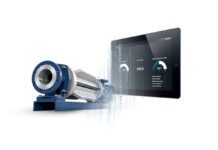
A potential link between microplastics and inflammatory bowel disease (IBD) has been flagged up by a scientific study released in late December.
The group behind the findings, from Nanjing Medical University, claims a significant advance in understanding the health consequences of microplastics, still a relatively unknown area. The study appears to find that people suffering from IBD have more microplastics in their faeces than those without the disease. IBD can cause symptoms ranging from persistent diarrhea to abdominal pain, weight loss, and fatigue.
Obtaining human waste samples from 50 healthy people and 52 people with IBD from different geographic regions of China, the team said they were able to demonstrate that the samples from IBD patients contained approximately 1.5 times more microplastic particles per gram than those from healthy subjects.
The two most common types of plastic in both groups were polyethylene terephthalate (PET; used in bottles and food containers) and polyamide (PA; found in food packaging and textiles), said a press release from the American Chemical Society.
The methodology comprised a questionnaire, through which it was found that people in both groups who drank bottled water, ate takeaway food and were often exposed to dust had more microplastics in their waste.
The prevalence of IBD, which includes Crohn’s disease and ulcerative colitis, is rising globally. Characterised by chronic inflammation of the digestive tract, IBD can be triggered or made worse by diet and environmental factors.
Scientist Ahmed Fawzy, who works with water purification expert Bluewater, said it was the first study to report the different concentrations of fecal microplastics between patients and healthy people.
“The study provides yet more alarming evidence of the pervasiveness of microplastics. It is deeply concerning that these non-biodegradable materials that are literally present everywhere are entering and accumulating in our bodies,” Fawzy said.
The researchers noted their findings, published in the journal Environmental Science & Technology, did not conclusively show that microplastics were causing IBD and said more research was needed to corroborate and develop an explanation for the link.
Nonetheless, they said their study provided “evidence indicating that a positive correlation exists between the concentration of fecal MPs and the severity of IBD”.
The team noted that those who tended to drink more bottled water or ate more takeaway food had the most microplastic particles in their stool.
“We conclude that the plastic packaging of drinking water and food and dust exposure are important sources of human exposure to MPs,” the researchers wrote in their study’s abstract.
“The overwhelming evidence is that microplastics are in the water we drink, the food we eat, and the air we breathe, so it’s inevitable we are finding the particles in our bodies, which is why we have put ending the need for single-use bottles at the heart of our business mission as an international water company,” said Bluewater founderBengt Rittri. “The problem is that we still don’t know what damage the chemicals in the microplastic are doing to our health and wellbeing.”







